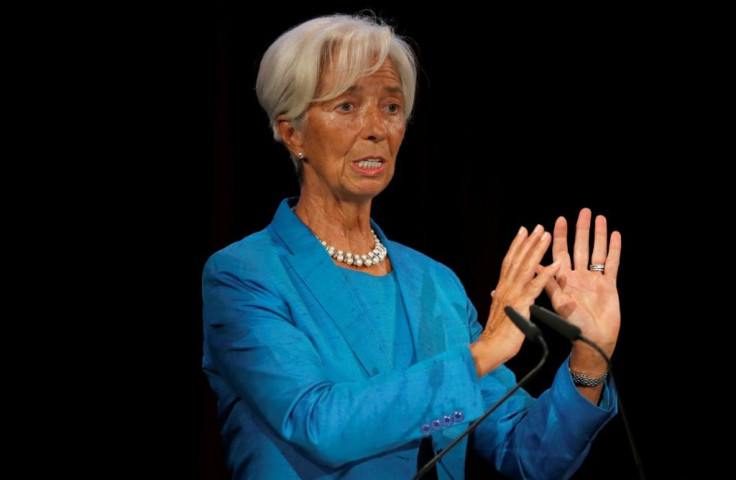Lagarde promises euro MPs reform and openness at ECB

After years of hectic crisis-fighting and massive expansion of its role, the European Central Bank must review how it purses price stability and communicate better with EU citizens, incoming president Christine Lagarde told Brussels lawmakers Wednesday.
"I want to dust off our language and do without excessive technocratic jargon to allow citizens... to understand what the ECB is for," Lagarde told the European Parliament's economic affairs committee.
Since the financial crisis a decade ago, the ECB has driven interest rates into negative territory and bought 2.6 trillion euros ($2.9 trillion) of government bonds in an effort to stimulate growth and drive up inflation.
Now, external threats such as the US-China trade war are braking growth, with Germany on the brink of recession and Britain mired in Brexit turmoil.
Inflation is still short of the ECB's just-below-2.0-percent target and savers and banks are grumbling that low interest rates are eating into nest eggs and harming profitability.
With other central banks backed into similar corners, voices calling for their role and tools to be re-examined have grown louder.
"Given the circumstances" it might now be time for "a review of the monetary framework," Lagarde said.
But the 63-year-old former French finance minister and IMF director was short on detail, saying she did not want to preempt remaining ECB governing council meetings before she takes office.
On nearer-term concerns, she reiterated that she would stick to the "same sound principles" as current ECB boss Mario Draghi, seeing "highly accommodative policy warranted for an extended period of time".
The departing president is expected to push for a new big-bang package of stimulus measures on September 12 to ward off threats such as protectionism and Brexit.
Moves could include deepening negative interest rates on banks' deposits at the ECB and a relaunch of "quantitative easing" (QE) mass bond-buying to boost credit in the system.
Welcome committee
While she has extensive policy experience, Lagarde lacks the economics doctorate of previous heads of the ECB.
But members of the committee focused more on her gender, with several hailing the fact that a woman had been nominated to the top ECB post for the first time.
The European parliament cannot block Lagarde as the ECB job is the preserve of EU heads of government.
But the committee will hold a vote later Wednesday as part of the legislature's consultative role in the appointment.
If all goes well, Lagarde will take office on November 1.
She could be pitched immediately into crisis-fighting mode if Britain quits the European Union without a deal the day before -- the current default position -- with ensuing trade and financial havoc.
No new 'whatever it takes'
Such turmoil would upset Lagarde's hopes for a smoother ride than her predecessor.
She harked back to a 2012 speech when Draghi promised to do "whatever it takes" to preserve the euro.
"I hope I will never have to say something like that, I really do, because if I had it would mean the other economic policy makers are not doing what they have to do."
While the eurozone is more robust than seven years ago, Lagarde highlighted that some countries' finances remain fragile and that powerful new tools have not been agreed, including a crisis-fighting joint budget and joint debt issuance capacity, or a bloc-wide bank deposit insurance scheme.
As head of the IMF, she has long argued for more intensive efforts to buttress the single currency area.
She was meanwhile pressed by many MEPs on how the central bank could help combat climate change, including by targeting its bond purchases away from fossil fuels and towards green projects.
he ECB's "primary mandate (is) price stability of course... (but) climate change and environmental risks are mission critical," Lagarde said, adding a "gradual transition" of its investments "needs to be done".
© Copyright AFP 2024. All rights reserved.





















